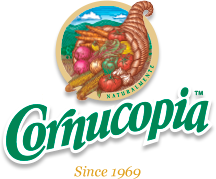Can Cats Eat Avocados?
You may be surprised that although cats are known to be finicky and only eat when and what they please, there are some foods that are not safe for them. Even though some foods are totally safe for humans, it's important for you to know that the same foods are not healthy for your feline friends. We at Cornucopia Pet Foods want you to be aware of foods that are harmful to cats to prevent them from getting sick and keep your pet's health optimal. The food in question is known throughout the world as a superfood with many wonderful health benefits. It's avocado. So, can a cat eat avocados?
Can My Cat Eat Avocado? (No)
No. Since avocado is a food that is commonly added to toxic food lists for animals, including cats, your kitty should never eat avocado, or anything that includes this famous super food. A healthy adult cat will probably recover from an upset digestive system after eating a small amount of avocado, but it is best you don’t risk it. Yes, avocados are full of healthy fats, nutrients, and antioxidants that humans need for a healthy heart, glowing skin, and lovely hair, but don't offer the same benefits for cats. You see, even though they are packed full of super nutrition for us, they are a fruit and can be harmful to your pet. Since cats digest their food totally differently from us, cats should always steer clear of every single part of this fruit, including its leaves, pit, and skin.
What Fruits Are Safe for Cats?
First, it is rare that cats, who are carnivores, like fruit. If they do eat large quantities of fruit, the high sugar content could be a problem. It is OK for a cat to eat small amounts of strawberries and bananas. According to the ASPCA, cats should never eat:
- Citrus fruit: Citric acid can cause nervous system problems
- Grapes: Grapes, raisins, and currants are all toxic to cats' digestive systems
- Coconut and Coconut Oil: Coconut could cause abdominal pain
Why Can't Cats Eat Avocado?
Why can't cats eat avocado? Because avocados contain an oil soluble compound, persin, a dangerous toxin for both cats, dogs, horses, and birds. As a matter of fact, persin is very dangerous and could cause death in horses and birds. Although eating persin is not life-threatening for cats, it can cause abdominal pain, diarrhea, vomiting, constipation, heart issues, and pancreatitis. Plus, if the cat eats and digests the avocado skin or pit, it is possible a part of it can become stuck or lodged in the windpipe and block their airway, causing a choking hazard. Since the avocado seeds are rather large, this is highly unlikely, but possible. Cats, as you know, are curious and playful, and they may find a colorful avocado fun to play with and possibly eat! Cats should avoid every part of the avocado including the fruit, pits, leaves, and plants which all contain this dangerous persin. The bottom line is to keep your cat away from all parts of the avocado.
What Happens If My Cat Eats an Avocado?
Although it isn't known how much persin is dangerous to your cat, if your cat eats any amount of avocado, the seed, leaf, or the skin, call your veterinarian immediately and inform them you may have an emergency. If you don't have a vet, contact one in your area that offers 24/7 emergency services. They will assist you with the best way to help your pet and where to take it if necessary. In an extreme emergency situation where your cat has eaten a large amount of avocado, its pit, skin, or bark, you should immediately call Animal Poison Control Center at 888-426-4435. The trained experts will assist you with information on what to do next to help your cat.
What Are the Signs My Cat Ate Avocado?
As mentioned earlier, if your cat eats a small amount of avocado, it is probably not an extreme emergency. In order to put your mind at ease, take the proactive approach and get medical advice and attention. Always keep avocados away from your cat. If your curious cat does eat any amount of avocado, look for the following symptoms:
- Abdominal Pain
- Vomiting
- Constipation
- Diarrhea
- Increased Heart Rate
- Coughing
- Difficulty breathing
- High Fever
- Pancreatitis
Keep in mind that cats require certain nutrition, and the Cornucopia team is here with very healthy and delicious organic cat food and treats for your pet. Contact us in Huntington, NY today!



